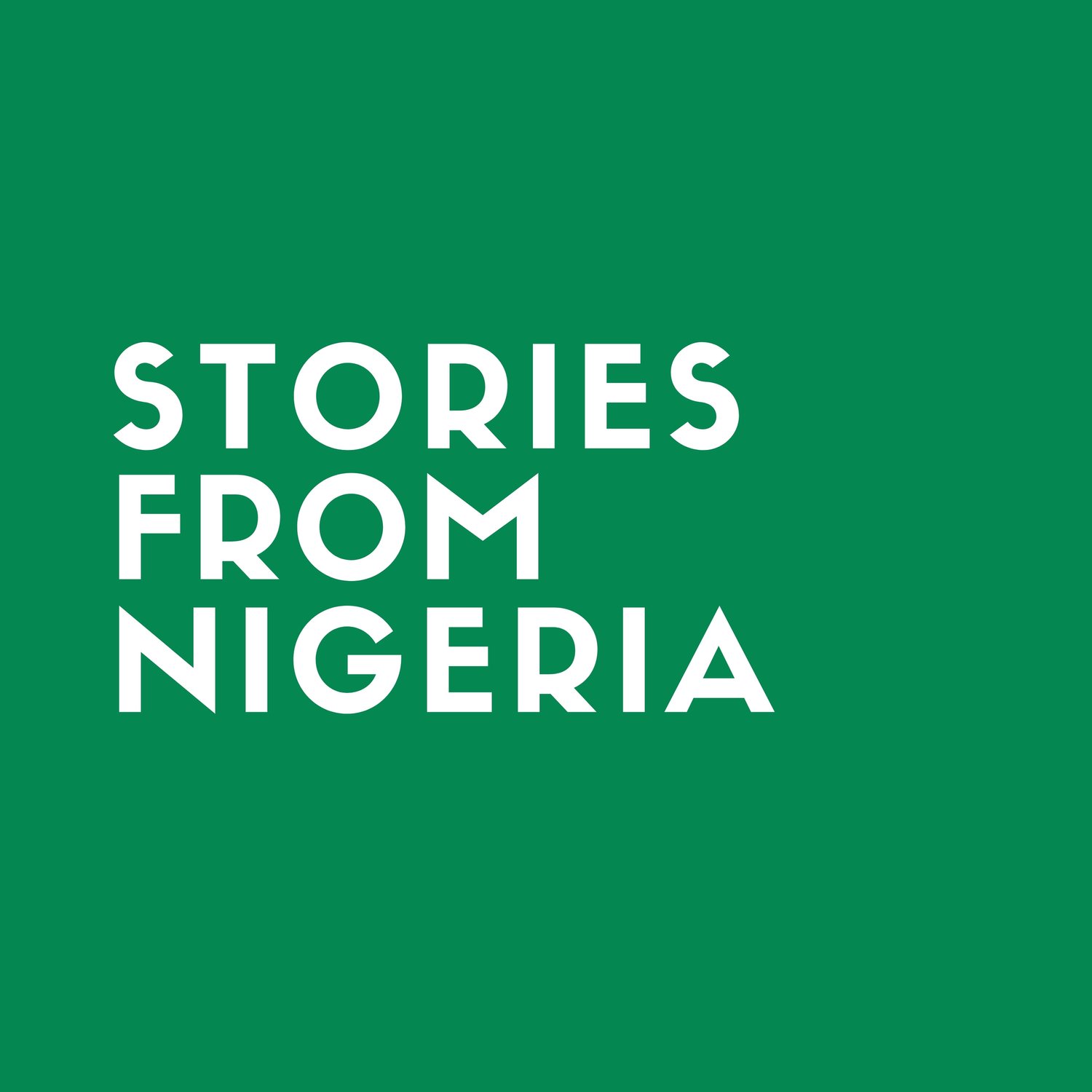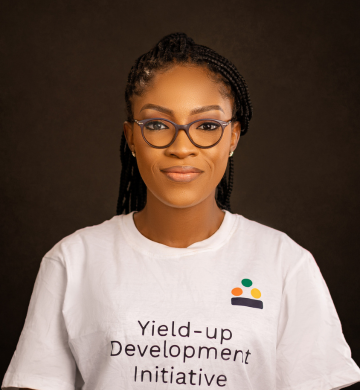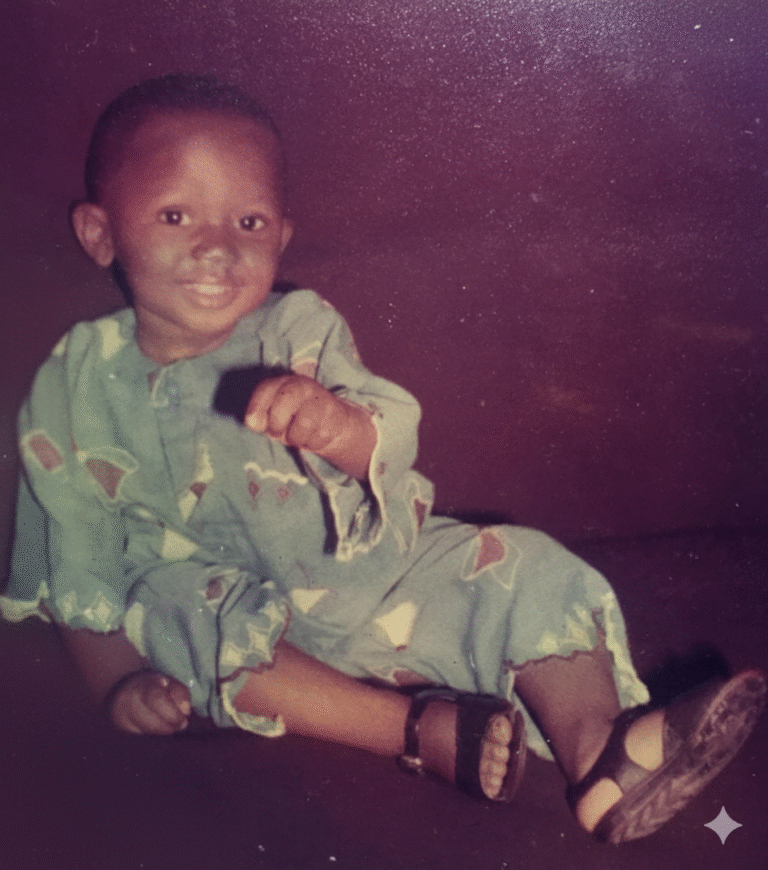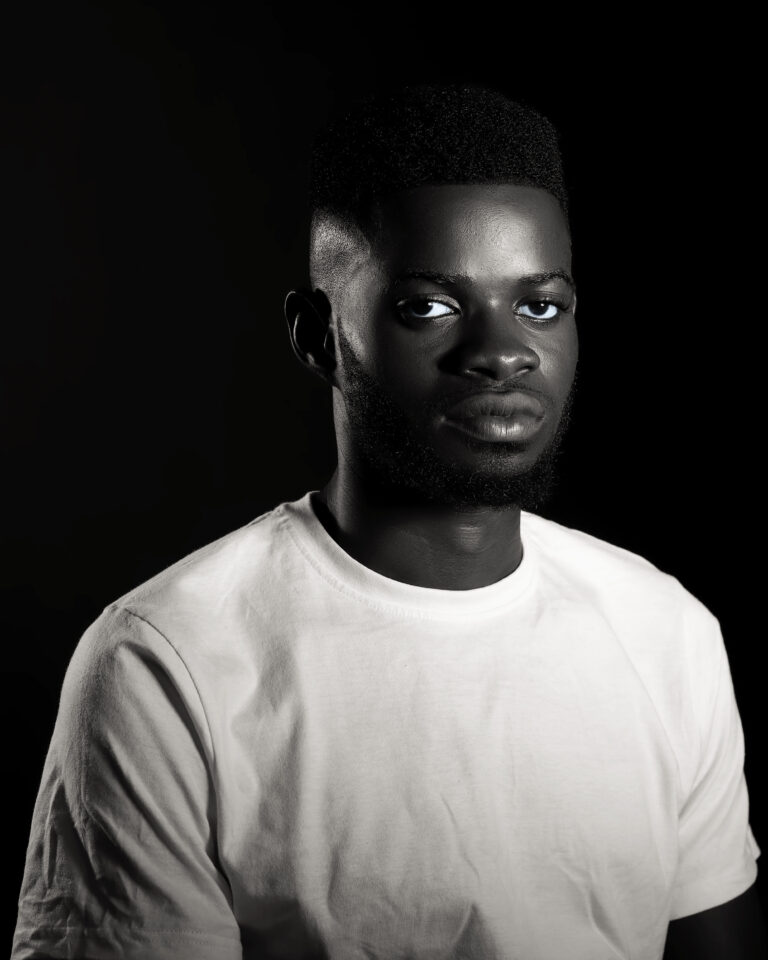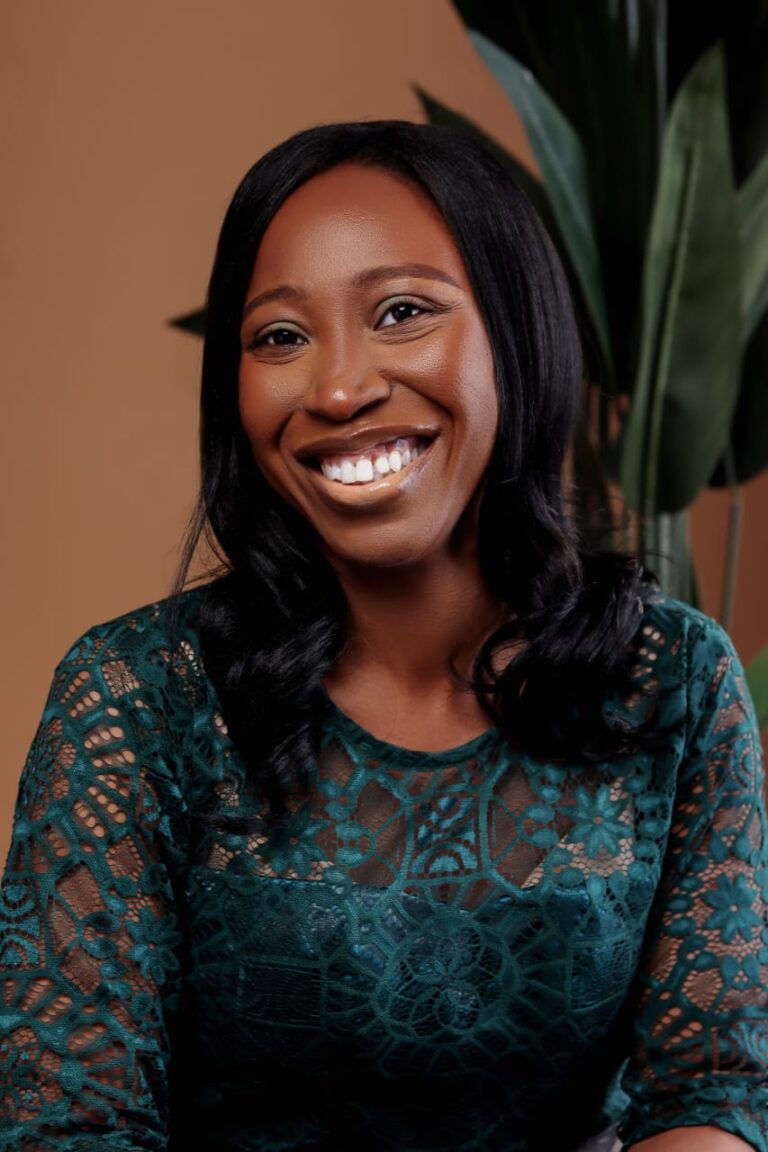The first time I began to understand what was going on was when I fell on the Assembly ground in Secondary School. I had had a series of recurring seizures. On getting to the hospital, the school put a call through to my parents. My parents lived in Anambra State while I schooled in Ebonyi. Scared for how I’d cope, they decided to bring me closer to home. This meant I had to leave the school I loved so much and the people I had forged a bond with. I didn’t understand why this was happening to me, but I knew something was wrong.
I had a form of disability nobody thought was a disability. I was born premature. There are lots of people born that way who are doing fine, but mine was different. I was born at 6 months, I had heard of 7 months, but not 6. As a result, I had a series of health conditions associated with babies born that way. One was particularly striking, I had a learning difficulty. I struggled in school, trying to learn and keep up with my mates. My parents grew worried. My younger brother was different. What he read and understood enough to recall, I had to read at least 5 times to get it. At first, they thought I loved to read. But soon enough they began to wonder “Why is it that Praise has to keep doing this when it is not so for her brother”. I had many chronic health issues categorized as disability. My life was tough already.
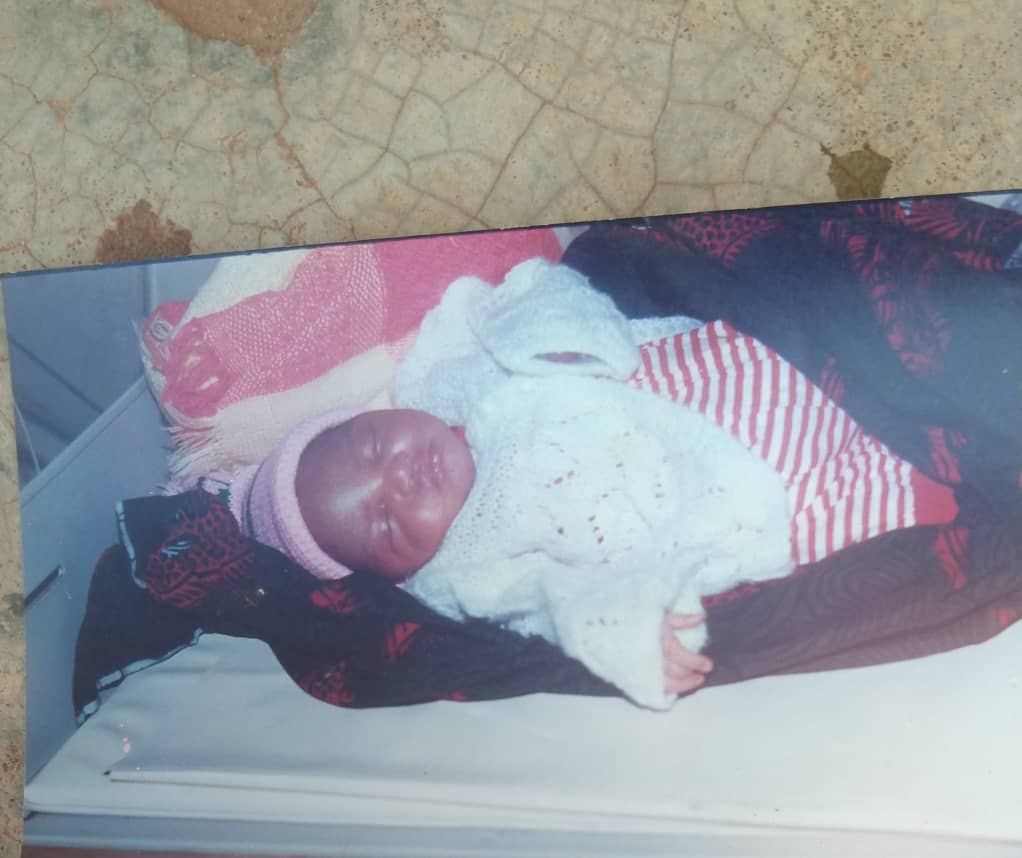
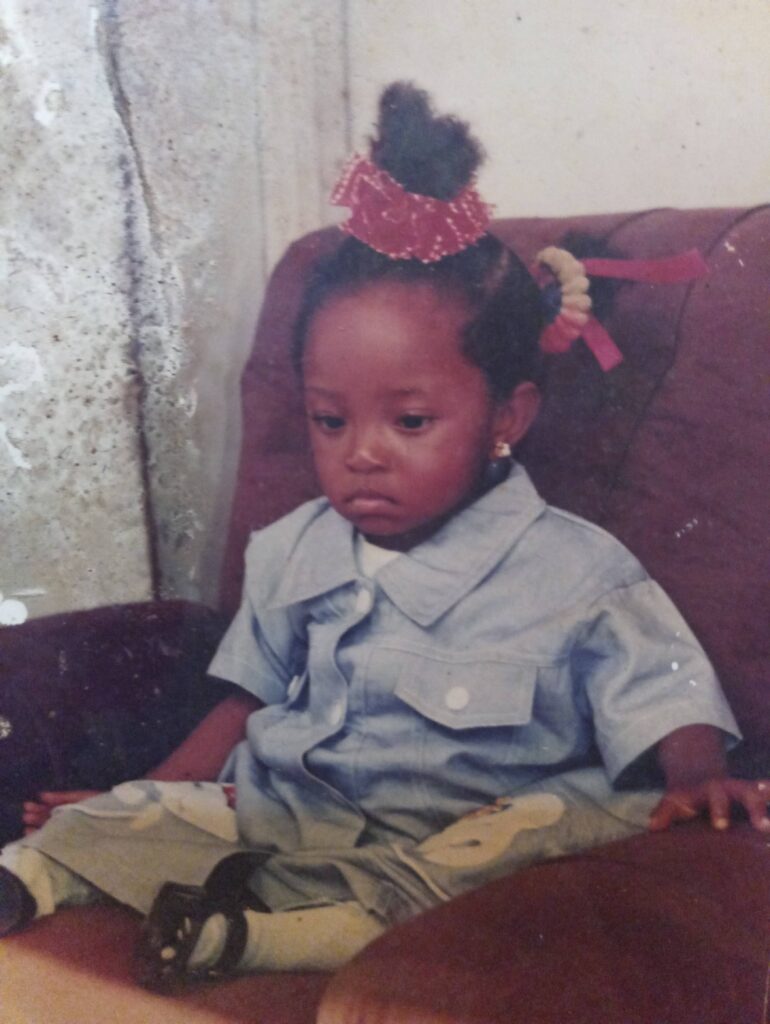
“Disability is not an inability; but an ability with a capability”
I have always believed this. It is personal for me, and it came to me when I decided to see how I could be the change I sought. When I left the boarding school, I began to see a few more people with disabilities. Shortly after resuming a new school, I noticed a lady with a similar challenge as me. I spoke to her and we both shared what we were going through with each other. People didn’t see that it was so much of a challenge for me because I still did well in my academics. I had to cope with all the learning and vision impairment issues I was facing up until the university. I got a glimpse of a breakthrough when I got into the university.

I completed secondary school coping with all the health challenges. I then got admitted to study veterinary medicine at the university. I know this doesn’t sound like a breakthrough. I mean imagine all I have been through, coupled with the fact that it wasn’t what I had applied to study. But here I was, in Veterinary Medicine. My life proceeded like a normal Vet Medicine student until one day. I stumbled on a material that was about how animals can support persons with disability. I was already reading about disabilities and what I could do to make a change. I didn’t like the course I was studying and I was curiously trying to find answers to the question “why am I actually here?”. When I came in contact with this material, I began to find the answers I sought. The author, now late, has a fellowship called the Global Huemann Fellowship. I am currently a part of this fellowship and the author was a global disability advocate. I read the material, and in the pages, I knew I had found what I was looking for.
In this material, I read the story of a young man, Nathan Selove. He is autistic and has a service animal, a service dog. The dog supported him through school to the point where he was doing very well. What caught my interest was the fact that the dog could be a part of his daily life, and support him. According to him, the dog is his biggest gift. This was the missing link of me finding myself in veterinary medicine and struggling with a disability.
In Veterinary School, I had a lot of challenges as I did in Secondary school. There were lots of times I was not in class and I was in the hospital. If you know anything about Veterinary Medicine, it’s weekly or even daily tests/assessments. I could remember one time I had to come back from the hospital to write five tests in one day. It was quite a journey but stumbling on the material about Nathan became my biggest drive and goal.
While going through these struggles, I was out of school one day to get some materials. I needed them for some designs for a class. I saw a young girl who was 11 years old. She was in her uniform, crying home and nobody asked her why she was crying. I came down from the tricycle I was in to talk to her. I tried but couldn’t talk to her. She was hearing impaired. Her home was in one of the villages outside my school gate. I was curious and wanted to follow her home. I didn’t want to scare her or be creepy so I was careful in tracing her home. Getting to her house, I discovered she got bullied in school. I interacted with her parents and got to know her hearing impairment has been on for a while. She said she never wanted to return to school again because of the bullying. She looked so full of dreams. Even though she was hearing impaired, I could see the possibilities in her.
I had written down somewhere that I was going to inspire possibilities in people. Particularly, in persons with disabilities. Seeing her, I saw that possibility, I saw the light in her. I decided to go to their home regularly to teach her but I didn’t understand sign language so it was difficult. I had to find a volunteer, someone who understood sign language, who would serve as an interpreter. I found someone and we met up every Saturday. This continued for a period of time, but at some point, I became occupied with the burdens of school.
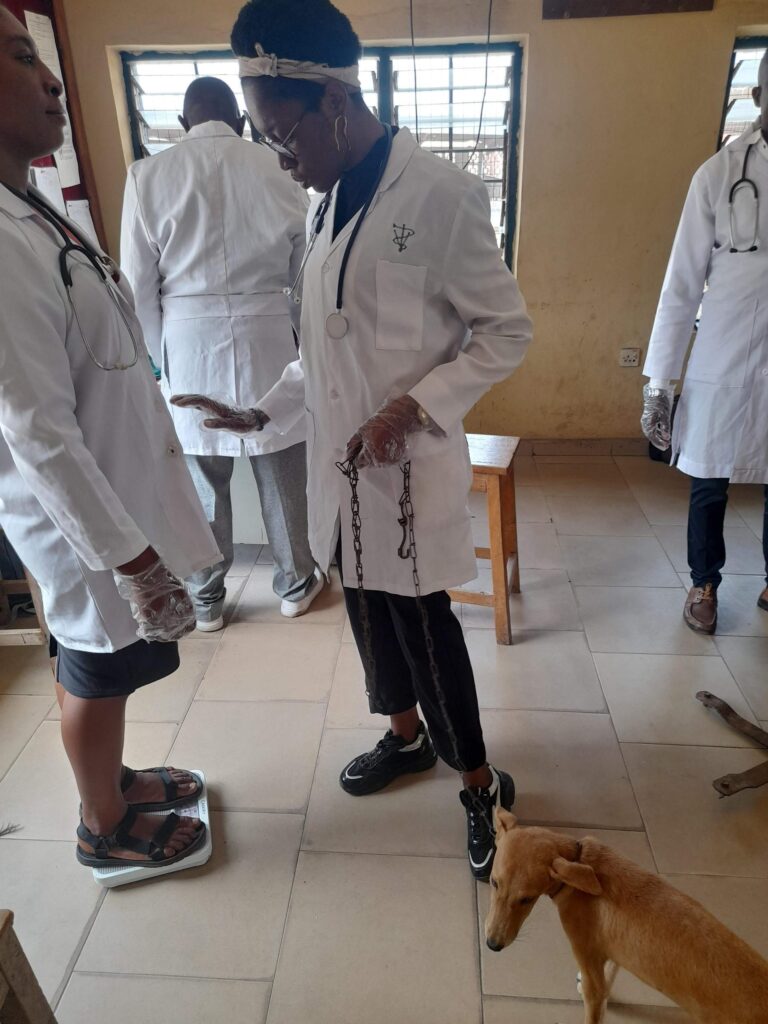
This was happening in my 4th year of Veterinary school. School got busier and I had to change from every Saturday to two Saturdays in a month. I needed to find a way to structure the teaching. In my research, I learned about the Universal Learning Design structure. I also took courses on special needs in my spare time. I saw that she was no longer interested in school. It would be futile to utilize traditional teaching methods. I had to look for more fun ways of teaching. She was 11 years old but had difficulties with counting. So we had to use plastic tops to help her learn the basics of arithmetic. I had to do this before translating it to her using pen and paper. I would also incorporate card games. These cards inspire and teach fun ways to care for and support persons with disabilities. She enjoyed the card games especially. Through this process, we learned to emphasize more on her abilities.
This is three years later, and she now serves with us as a volunteer. She also helps other persons with disabilities in the community. She was my entry into what is now the organization I founded. When we started the organization, the focus was not on disabilities. It took us time to rephrase what we were doing. We had to begin to focus on disability inclusion in Benue State where we currently operate. It’s the only state in Northern Nigeria where the disability law isn’t enacted. From our data, 90% of the children and young persons with disability are out of school. These are the connecting pieces for me.
I often wonder what drew me to her. It could be that I saw my 11-year-old self in her. Even though mine wasn’t a hearing impairment, we had a strong connection. I wouldn’t have followed her home if I didn’t see that connection. It was a call to connect to something higher than what I was doing at that point. It was deep calling unto deep. I was glad I responded and it’s a blessing I keep talking about. I got scared of going to her house at the initial moment, many things came to my mind. I thought of so many possibilities, of things that could happen to me when I got to her house. My drive was this “There’s something for you, there’s something you can do. You’re connected to this lady and you can support her”.
During my final year, I applied for the Mandela Washington Fellowship as a way to gain more knowledge and exposure to the work I was doing. I was preparing for exams when I got the congratulatory message. I had to choose between the fellowship and my final exams. Both had to happen, I said to myself. I didn’t know how, but it had to. I met the Dean of my faculty and he was super excited for me. I didn’t understand his excitement but at the end I proceeded with the Fellowship. I came back from the fellowship and sat for my exams, alone. This was the first time in the history of the school that this was happening. Their reason was this “We’ve seen you do things that even persons who are hale and hearty have not done”. This meant so much to me.
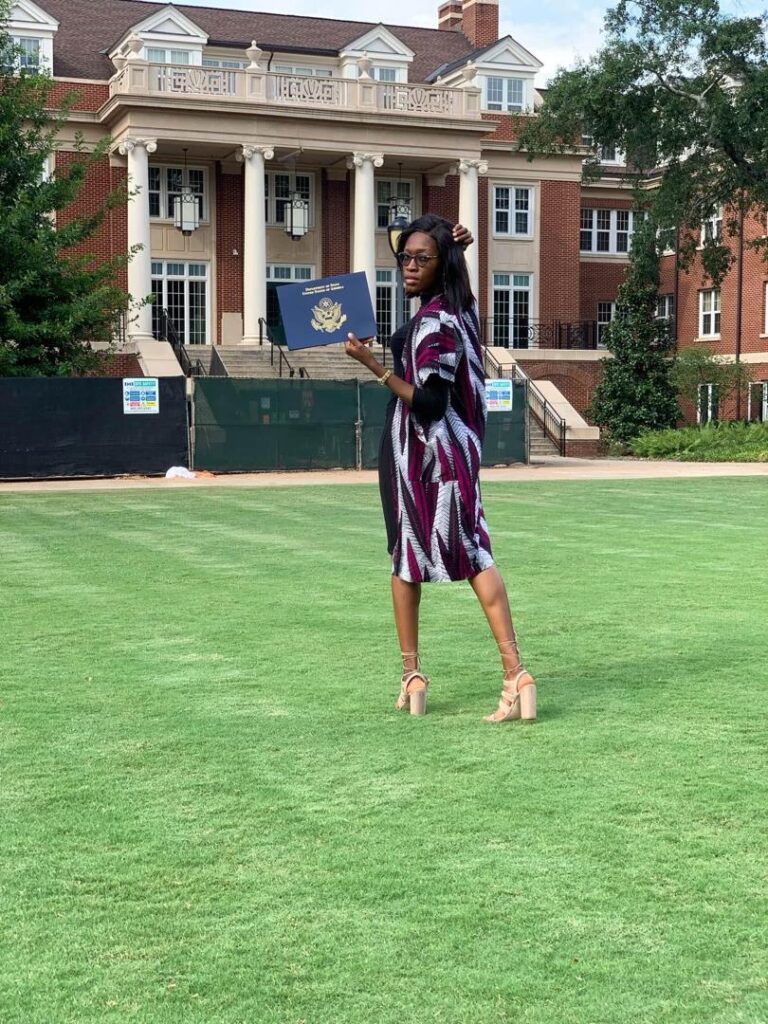
I got commendations from lecturers who advised me to move to another department. They felt I couldn’t cope with my health, the work I was doing, and school. But now, people call me from the school to say lecturers are advising them to “think outside the box, like Praise”. The same lecturers who said I should focus on academics alone because of my challenge. They now ask students to leverage their courses in looking for ways to support the community. The world needs one person to step out, do it, and get results. Of course, this may be difficult. But if you succeed, you serve as a link for other people to do what they think they cannot do.

Our end goal with the organization is to create safe spaces in different communities. These would be where people with disabilities can not only come to learn but where they can see as home. Someone once asked me “Are you not discriminating in trying to create these safe spaces?” Their reasoning was “Why not rather focus on getting the kids back to school?”. I responded, “Using Benue State as a case study, discrimination in these schools has not been a focus for a long time. Teachers are not trained to support persons with disabilities. It gets difficult both for them and the teachers”. Before getting them integrated into schools, we want to create these safe spaces. An environment where they don’t see themselves as a limitation to their communities. We have had three communities embrace the idea of what we are doing. It began with house to house then street to street to now needing a space where we have these teachings. The number of children has grown. It has become imperative to have an enclosed space where we can have closer interactions. Also to engage them in activities that spur their creativity. We focus on each child according to their disability needs and as such we need to pay close attention to them. Doing this in open spaces has not been as productive as we want it to be.
We recently engaged with the communities and they have provided land for us to build a structure. We are currently raising funds to achieve this. We call it Project BALE, ‘Build A Local Eco-Friendly Library’. We are being creative about it. In doing that, we are using plastic bottles to build this library for the children in this community. The library has three focus points; education, creativity, and therapy. The Education Section includes both formal and informal. The Creativity Section would need us to understand each child’s creative inclinations. We have been using plastic bottles for that purpose. Making flower vases, trash bins, etc. for the community. We have also incorporated music and chess into their learning. This is helping us get the children creative and active. For therapy, I worked with an organization called Dogalov Human Support Initiative. It is an organization that incorporates animals to support persons with disabilities. We want to incorporate animal-assisted therapy in sync with counseling. Although Nigeria has not embraced animal-assisted therapy in its entirety. The organization has been working on enlightening people on human-animal interactions.
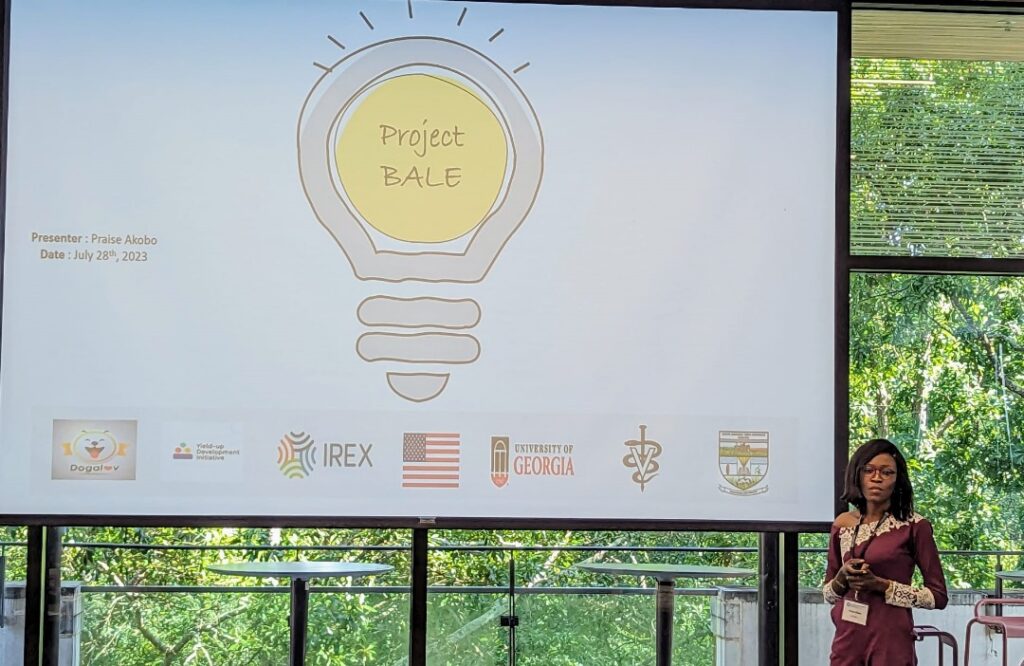

Whether it’s autism or cerebral palsy, dogs get trained to support people with the conditions. My organization, YieldUp Development Initiative, is in partnership with Dogalov. We also partner with the Veterinary Teaching Hospital in Makurdi. Before a dog undergoes training, you have to be sure they do not have any zoonotic disease.

The reception to all this has been one with a lot of struggles. There are times I have asked myself “Praise, can you really push this?”. The look on the faces of people when they ask me “Are you sure you understand what you want to do?”. People even say to me “There are other amazing causes to put your life into than focusing on this”. As much as I can, I try to explain the basic concepts to people, hoping that they get it.
Awareness is at the helm of what we do. When we visit schools, our first assignment is to get the children to understand what a disability is. I try to explain to them using basic scenarios. We rarely use the term disability, especially in rural communities. We address the conditions using basic terms like this person is blind, this person can’t hear, etc.

Our approach to the work we do in communities is simple. We ensure the community takes ownership of the idea we are bringing to them. For instance, in a community in Benue, I came across a young boy about the age of 10. He did not have any disability but knew how to interpret sign language. He assists his young mum who is in her 20s. When we visited the family, he was the one trying to explain to his hearing-impaired mom what we were there for. The village head wasn’t aware there were people like that in the community. This got us their buy-in into what we were there for.
We also do a lot of work re-orienting our volunteers because it begins with them. We want the volunteers not to have a challenge interacting with persons with disabilities. I learned something while at the Mandela Washington Fellowship about a concept. The concept of “the body system” in engaging our volunteers better. A particular person gets assigned to a child with a disability. So aside from family members, there is a person in the community who is now assigned to the child. This person will do some sort of checking in when we are not present.

I was very reserved growing up. My parents would describe me as that child who never wanted to speak to anybody, always on her own. I was an introvert but I learned that I cannot release my deepest potential until I step out of my comfort zone. That was when I began to grow into this and get better at what I am doing. I also discovered that responsibility is a response to an ability. Children with disabilities have so many possibilities. I have been dealing with my own disabilities better because the passion for the work propels me. One step at a time, we are awakening possibilities in disabilities.

Attached are our organization’s account details –
Account Number – 0097201727
Bank Name – Sterling Bank
Account Name – YieldUp Development Initiative
GoFundMe Link – https://gofund.me/6d1c77c7
